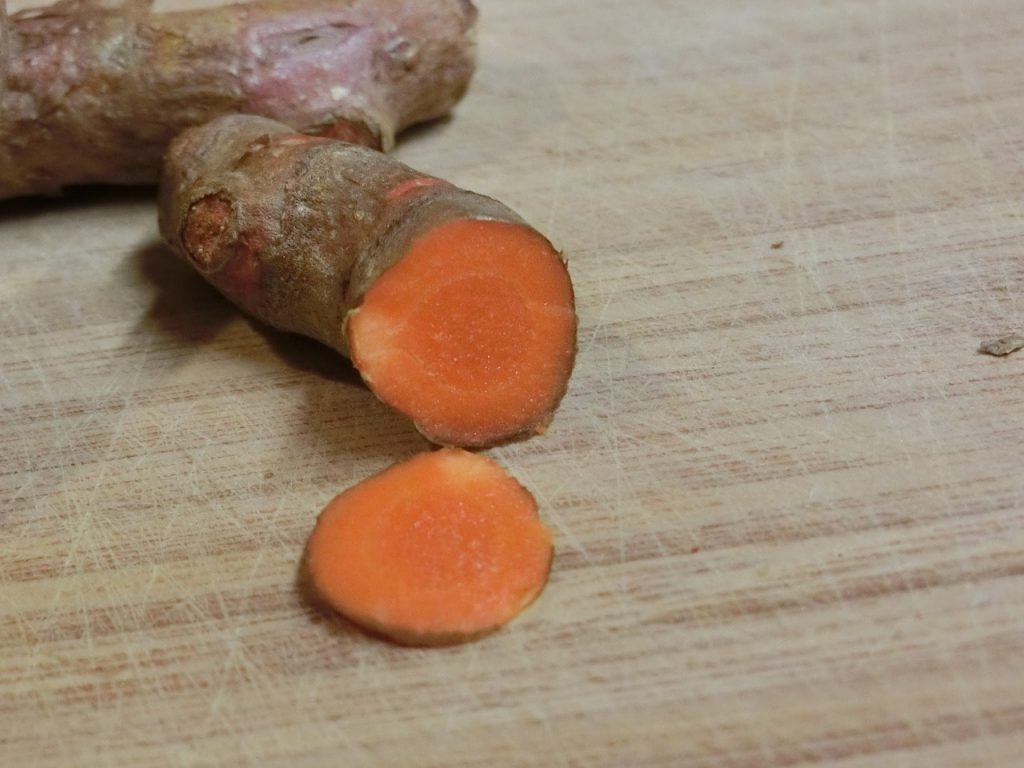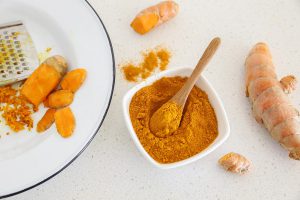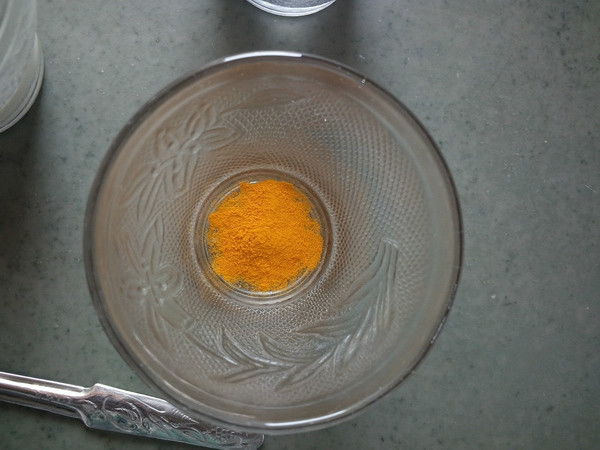The History of Turmeric:
Ayurvedic Medicine

An Auspicious Plant
A Medicinal Herb
The Use of Turmeric Root in
Ayurvedic Medicine

Additionally, people consumed turmeric for digestion and heart health. It became so popular that Ayurveda developed a hundred names for turmeric. For instance, Jayanti means “one who is triumphant, over disease”.
The energetics of Turmeric are: Bitter, astringent, and pungent. It is said to decrease Kapha and increase Pitta and Vata.
The Benefits of Turmeric Root

Turmeric is known to help particularly in three areas:
-
Digestion
-
Inflammation
-
Metabolism
Digestion
Inflammation
Metabolism
And finally, turmeric boosts your metabolism. This means that your body burns energy more effectively.
More Benefits
Turmeric has been found to:
Caution
-
A blood condition
-
Are pregnant
-
Or take medicines which may affect your blood pressure, such as aspirin or statins
Supplementing With Turmeric
Turmeric Tea

Fresh Turmeric Root

If you can get your hands on fresh turmeric root, then have some pulp or juice. This has added benefit because it has not been cooked or processed at all! So whatever compounds are giving you the benefits will be intact.
As is often the case with plant-based herbal remedies, the fresher your turmeric, the greater the benefits. Use a juicer to extract the fluid from the root, as it's often hard and fibrous and not easy to make juice any other way. But if you dice it very, very small, you can put it in almost any blender and use the pulp in sauces, smoothies, and desserts.
Golden Milk

Golden milk has been popular in Asian countries for a long time. It's considered to be an ancient recipe, and you can see dramatic health benefits from drinking it. You can make it at home or buy it at some health food stores. These stores may also sell different versions of golden milk and it's possible to find both dairy and vegan versions.
How to Make Golden Milk
Some recipes use coconut milk instead of dairy milk. Other recipes add cinnamon and more spices. There are also versions that add extra fat such as butter or ghee.
Turmeric Capsules
Finally, there are little capsules of turmeric you can take if you aren't keen on the taste of the plant. These are the best option for someone who doesn't like the taste of turmeric. Some pills are tablets of compressed turmeric, whereas others are capsules filled with turmeric powder.
Make sure that if you choose the pills they smell, as this is a sign that they will break down in your stomach and be absorbed. You will not digest odorless pills as well.
As long as you make sure of this, both of these forms are good supplements. But stay away from curcumin supplements and turmeric in gel forms. Curcumin because it is not effective, and gel turmeric because there isn't enough turmeric in them to have an effect






I have been using Turmeric for years in capsule form to control my arthritis along with a few other natural remedies and dietary adjustments. I have noticed that the swelling in my arthritic joints has been significantly reduced. Do you think that the capsule form of Turmeric is a viable alternative if turmeric root is not available? It seems to work for me.
Ramona
Hi Ramona, It’s always better if you can ‘taste’ the herb you’re taking… but if you feel that you’re seeing results with capsule form, then stick with it. You can purchase Turmeric root fresh from Amazon. I put the link in the article for your convenience. If you decide to try it, please let me know your results. Take care and much love, Jackie